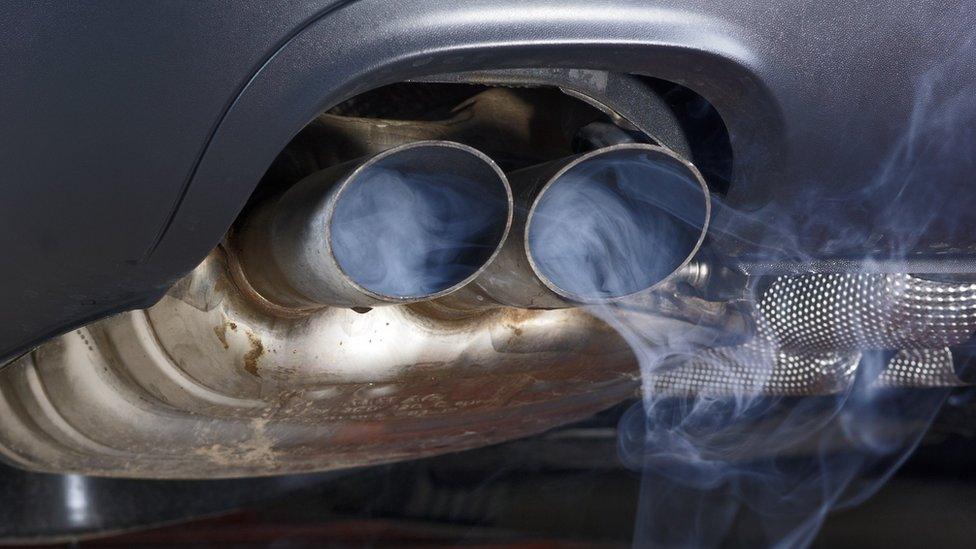Bath Clean Air Zone leading to 'unsafe' streets, locals say
- Published
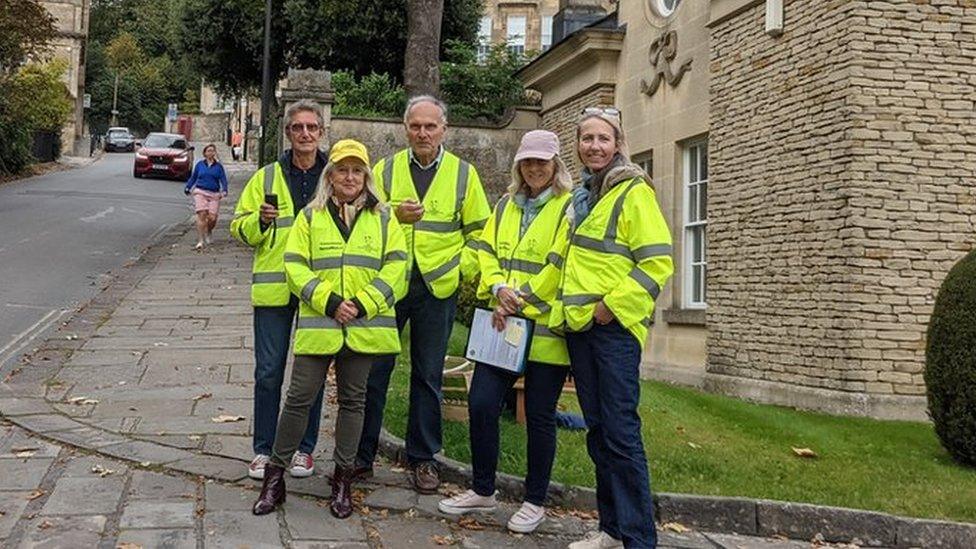
The Cavendish Road speedwatch group says its biggest concern is an "almost complete disregard for the 20mph speed limit"
A city's clean air zone has "doubled" traffic on some roads and is leading to "bonkers speeds" from drivers using streets as rat runs, residents say.
A group of volunteers have set up a speed watch on Cavendish Road in Bath after reports of accidents and near-misses.
The clean air zone (CAZ) was introduced in the city centre earlier this year.
Bath and North East Somerset Council said it is committed to ensuring traffic is not just being displaced.
As part of the CAZ, the council installed traffic lights on Queen Square to reduce nitrogen dioxide levels without having to charge private cars to enter the clean air zone.
But the speed watch group told the Local Democracy Reporting Service that the new lights have resulted in "significantly" more traffic which travels at "unsafe speeds".
It said it has clocked speeds of up to 47mph in the 20mph zone.
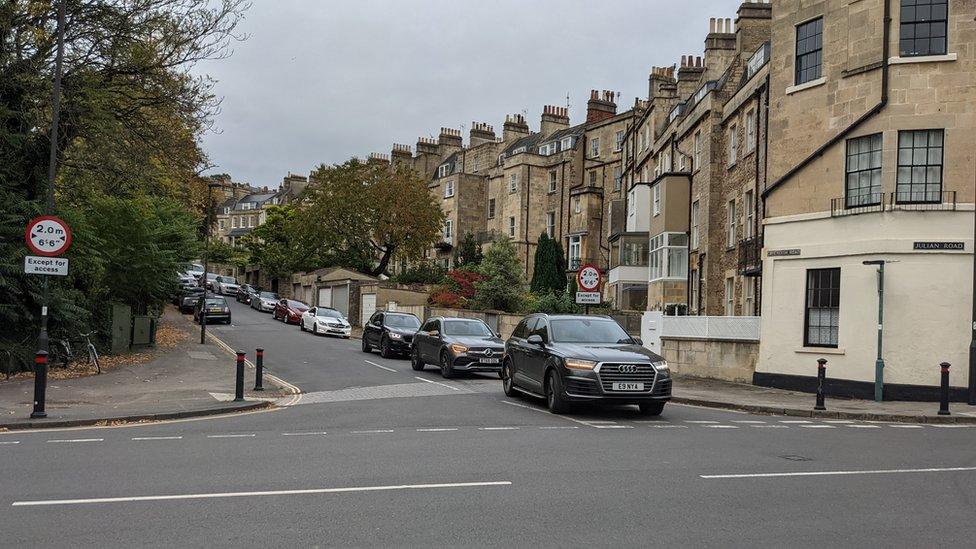
Traffic is often seen queuing at the bottom of Cavendish Road
Coordinator Rachael Hushon said: "The congestion is bonkers. Speeds are bonkers. It's just relentless.
"We have had dogs run over, wildlife killed and near misses with pedestrians. We have had lorry spillages, lorries crash into grade I-listed buildings, coaches get stuck trying to cut corners.
"We have no traffic calming measures so the rat runners love racing up and down the road."
Jamie Everard, who can see traffic queuing from his office, said he had predicted the impact of the traffic lights in Queen Square and asked why the council was pushing traffic from a largely commercial area to residential streets.
"I have a young child and as any parent I'm concerned for her safety," he said.
Julia Perryman, who coordinates another speed watch in Marlborough Lane and Buildings, added: "Our biggest concern is an almost complete disregard for the 20mph speed limit, and driving has become very fast and frequently very aggressive."
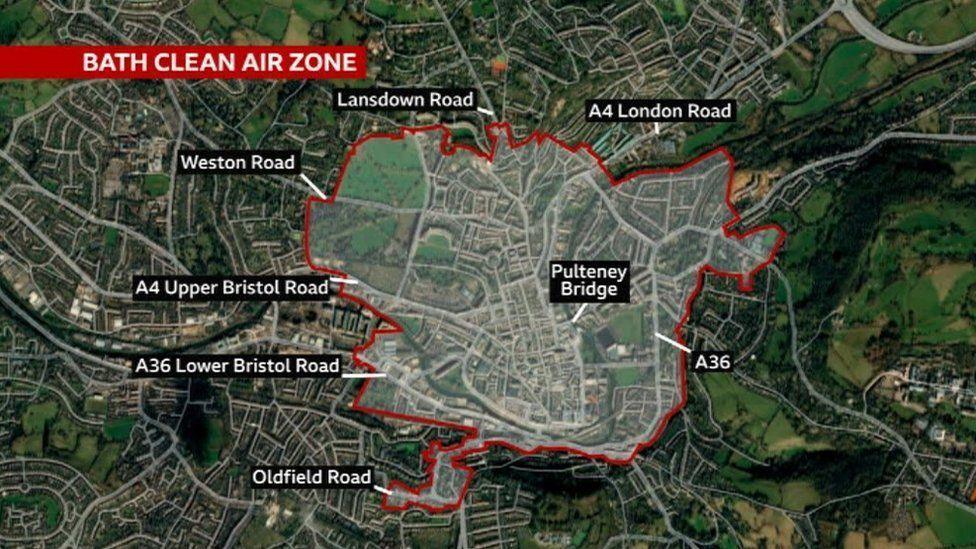
Owners of commercial and higher polluting vehicles are required to pay to drive into the city centre, although private cars are exempt
Sarah Warren, BANES cabinet member for climate emergency and sustainable travel, said the traffic lights were introduced to "drive down high levels of pollution in the area and to avoid even stricter restrictions".
She added that nitrogen dioxide levels are reducing in the area and the council is "committed to ensuring that the zone does not displace traffic or air pollution".
"We've set out a process for dealing with specific concerns about displacement of vehicles, comparing traffic flow data with previous years to understand any changes which may require mitigations," she said.
"Following these reports on Cavendish Road, we will review the data from the latest assessments we have been recently carrying out to see if mitigation is required in this location."

Follow BBC West on Facebook, external, Twitter, external and Instagram, external. Send your story ideas to: bristol@bbc.co.uk , external
- Published23 June 2021
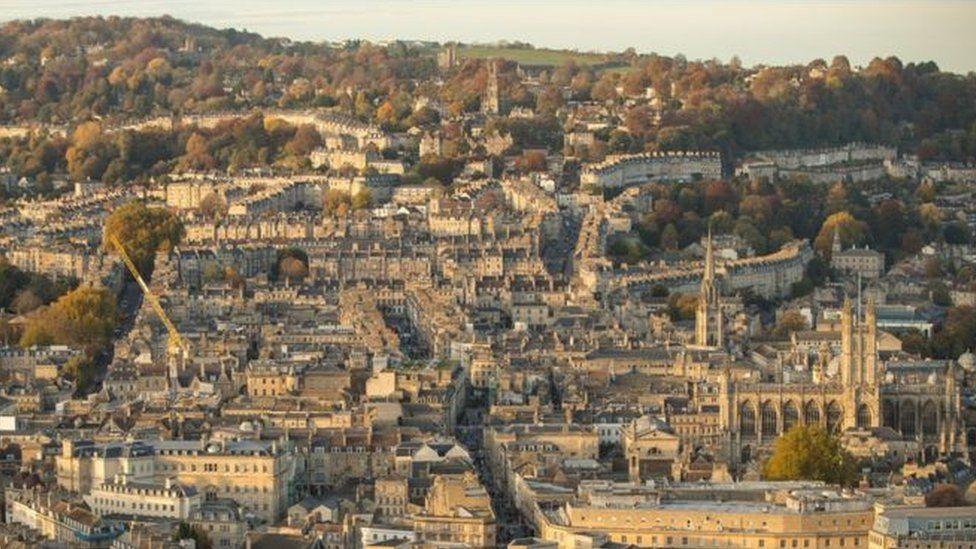
- Published21 June 2021
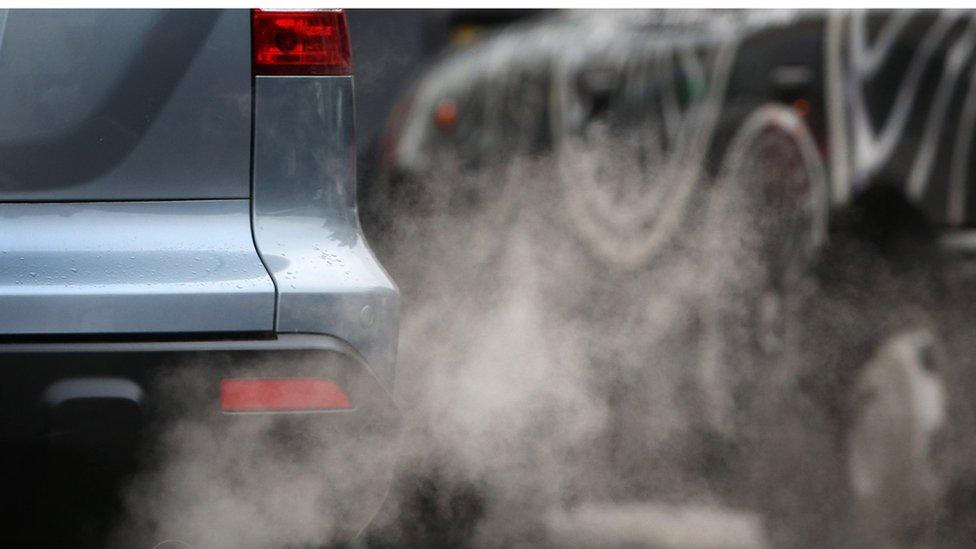
- Published14 February 2021
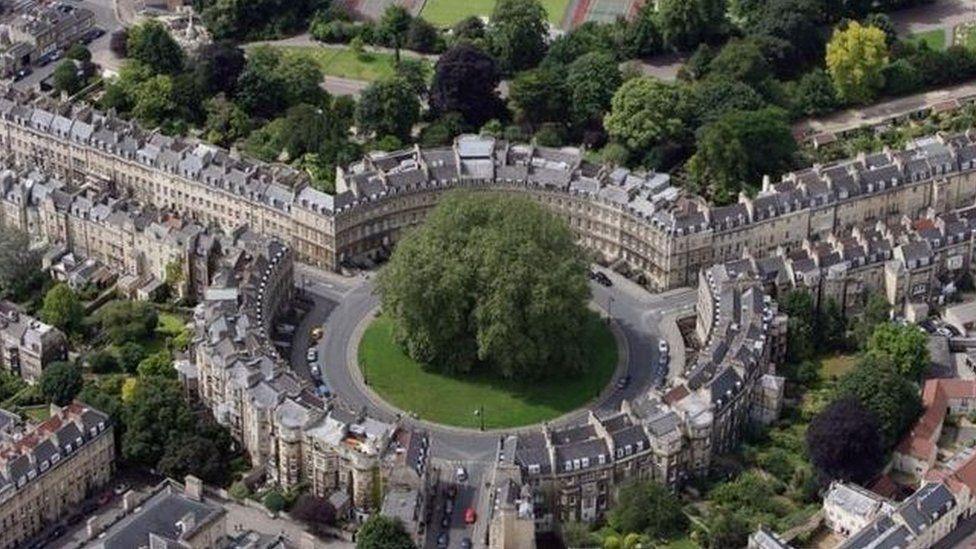
- Published14 March 2021
